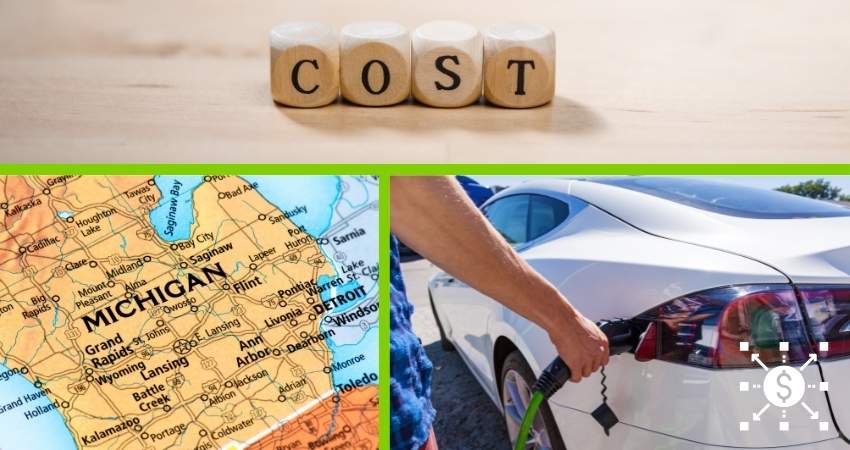What do electric vehicles run on? The answer is electricity. So for EVs to be functional and practical, it was imperative to have gas stations for EVs. But instead of fuel, they had electric outlets for charging.
With an escalation in the number of electric vehicles on the road, the need to install charging Ástations at convenient distances emanates.
Many companies, including Tesla, have started making charging stations across the U.S. So how could Michigan be left deprived?
According to the U.S. Department of Energy, Michigan currently has 769 electric vehicle charging stations, which is just a fraction of what will be required eventually. Many buyers are reluctant to purchase electric vehicles because of a lack of charging infrastructure.
But there is good news for the people of Michigan. The Federal Government has allocated over $16 million to install more electric vehicle charging stations.
Are EVs Cheaper to Operate Than Gas-Powered Vehicles in Michigan?
You probably believe EVs are cheaper to run than combustion engine vehicles, too, right? It is a worldwide notion that EVs are generally more affordable in maintenance and daily use.
According to a 2018 study from the University of Michigan’s Transportation Research Institute, the average annual expense to operate an EV in the U.S. was $485. On the other hand, gasoline-powered vehicles consumed around $1,117.
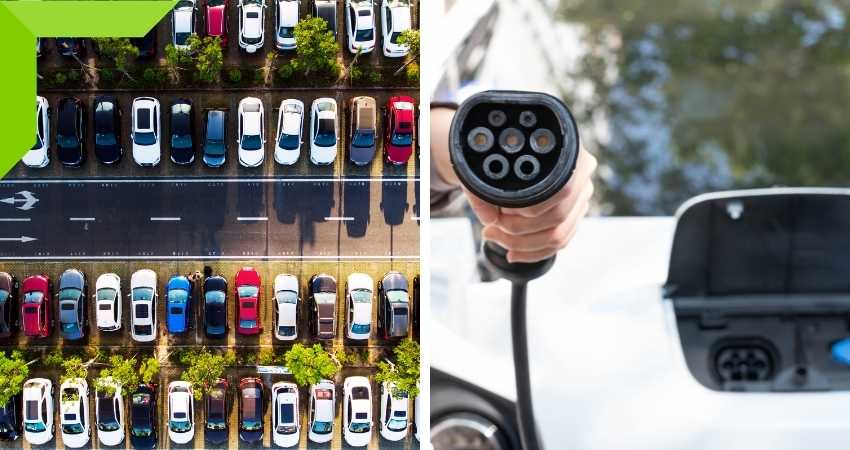
But some studies substantiate that EVs require certain not-so-apparent expenses.
An economic consulting firm, Anderson Economic Group, released its study, Comparison: Real-World Cost of Fueling EVs and ICE Vehicles. The study elaborates on four additional costs to power EVs, excluding electricity. The cost of a home charger, commercial charging, the EV tax, and “deadhead” miles.
Charging costs vary to a greater extent than gasoline prices. It costs more to power an EV than gasoline to fuel an internal combustion car. It takes significant time to find a reliable public charger. And then, the charger can take 30 minutes to go from 20% to an 80% charge.
In hindsight, an EV might have some untold expenses, But they are still cheaper than their alternatives. EVs are more efficient and require lower maintenance. With the increasing infrastructure for charging, EV is the way to go, regardless it is Michigan or not.
Cost of Installing a Charger at Home in Michigan
When buying an EV, you might be eager to know how much it costs to have a charger in your home. In Michigan, it can cost around $850 to $2,200. Usually, it takes $1,200 for a 240-volt outlet, charger, and wall-mounted system.
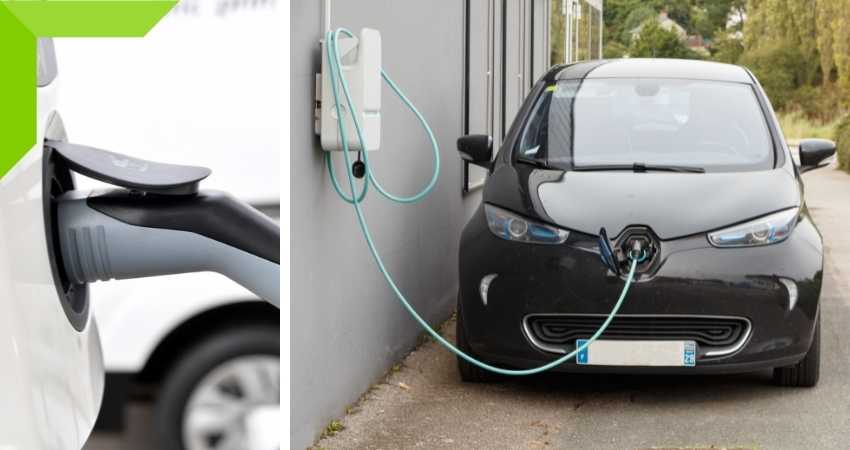
There are two types of chargers, categorized as Level 1 and Level 2 charging stations.
Level 1 charging stations come with your EV These chargers are plugged directly into any 120-volt outlet, making them portable. As your EV already comes with a Level 1 charger upon purchase as a package deal, the cost is usually free. But, if you need to replace the charger, it costs around $300.
Level 2 charging stations use a 240-volt outlet and can be portable or mounted and hardwired to your home. Additionally, Level 2 charging stations include features like wi-fi and other add-ons. The cost can range anywhere from $300 for a basic charger to $1,200 for a charger with bonus features.
Adding a 240-volt outlet requires a permit. You have to bear miscellaneous expenses while installing a charger. Tax credits are available for purchasing and using an EV. So, you need to speak to the relevant authorities.
Electricians charge anywhere from $40 to $100 an hour. If your garage does not have wiring already, your electrician will need to spread the wires to this area which can cost $6–$8 per linear foot.
Upgrading to a better system also requires money. If your system uses too much electricity, it can overburden the home’s circuit panel. Some people consider installing solar panels to charge their cars which can take a toll on your bank account installing hefty solar plates.
Cost to Charge EV at Home in Michigan
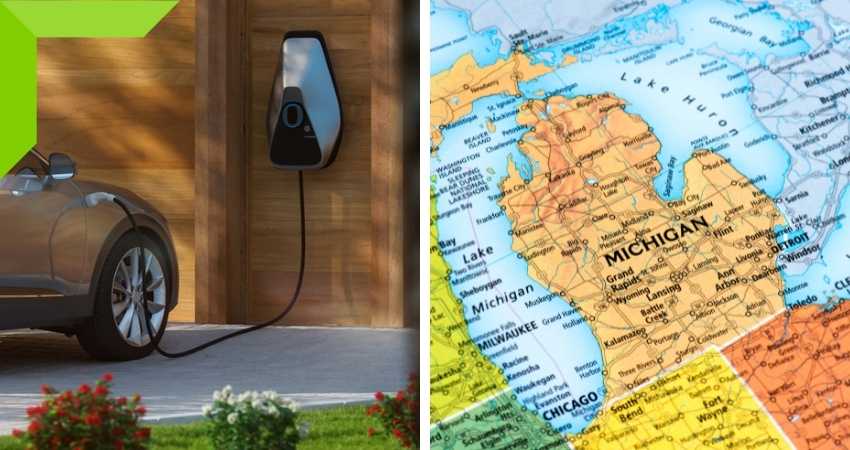
Most Michigan residents are on R.S. Tariff 015 and pay 14.5 cents per kWh of electricity at home. In some parts of Michigan resident price is 17 cents per kilowatt hour.
Most electric vehicles charging at a 240-volt level 2 charger will draw about 7,200 watts or less. And a typical electric car (60kWh battery) takes just under 8 hours to charge with a 7kW charging point.
If we do the math correctly, this totals $8-$10 per every full charge.
Cost of Charging an Electric Car at Public Charging in Michigan
The rates for public chargers around Michigan range from 31 cents per kilowatt hour to 66 cents per kilowatt hour. The average cost of charging an EV at a commercial charger is between $10 and $30 per full charge. Commercial chargers can also require the EV driver to enroll and sometimes pay a fee. The owner of the public charge point is at liberty to set desired rates. So you will see a significant variation in prices.

The average cost of charging an EV at a commercial charger is between $10 and $30. You are charging your EV at a public charger price significantly more than a charger at home. The commercial charger rates are two, three, or four times that of residential charger rates. And not surprisingly, you often find yourself having to go to a commercial charger. You can never be too sure regarding the charging of EVs.
A mid-priced EV, such as Chevrolet Bolt, Nissan Leaf, or Tesla Model 3, would cost $12.95 to drive 100 miles. It means recharging the vehicle using a commercial charger.
Rebates for Residential Level 2 Charging Stations in Michigan
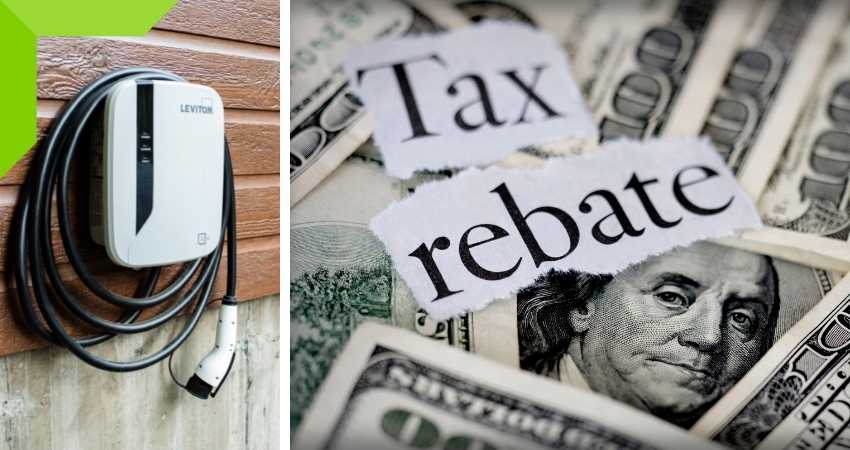
DTE Energy offers a $500 rebate for installing a Level 2 EV charging station to residential customers that purchase an electric vehicle (EV) and enroll in the EV Charging Rates.
HBPW offers residents a $300 rebate for purchasing a Level 2 EV charging station. The EV charging station must be ENERGY STAR certified, wi-fi compatible, and send monthly usage data to HBPW. Residential customers must also enroll in a time-of-use rate.
BWL offers a $1,000 rebate for installing a Level 2 EV charging station to residential customers who purchase or lease an electric vehicle.
GLE offers residential customers a $500 rebate for purchasing a networked Level 2 EV charging station and a $500 rebate for buying a new EV.
Rebates for Commercial Electric Car Charging Stations in Michigan
Commercial customers installing publicly accessible charging stations are eligible for rebates up to $5,000 per Level 2 EV charging station. Up to $70,000 rebate per DCFC station.
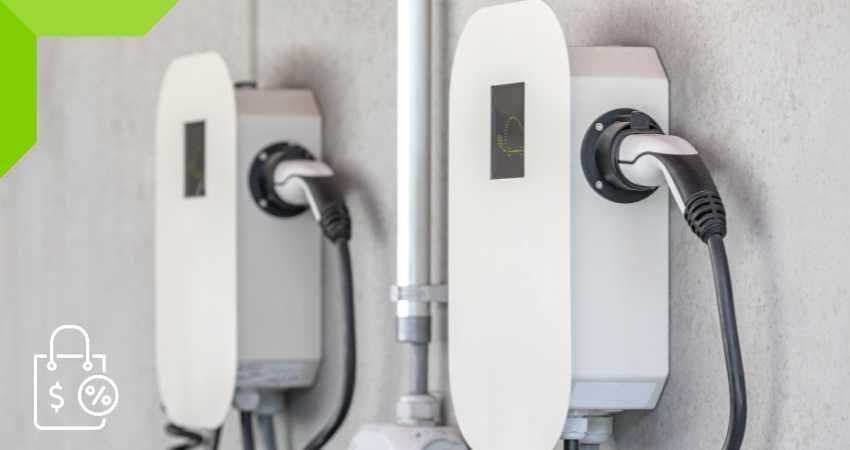
The Consumers Energy PowerMIFleet pilot program offers commercial customers rebates for EV charging stations. Applicants must provide substantial proof of purchase of at least one plug-in electric fleet vehicle and allocate one parking space per EV charging port. They must also provide EV charging station charging data to Consumers Energy for the duration of the pilot program to be eligible.
Either Michigan or any other part of the U.S., charging the cost of an EV will waver more than gas prices. But it is more cordial for the atmosphere. Hence, the Government is providing rebates and incentives for people to encourage them to shift to EVs.

